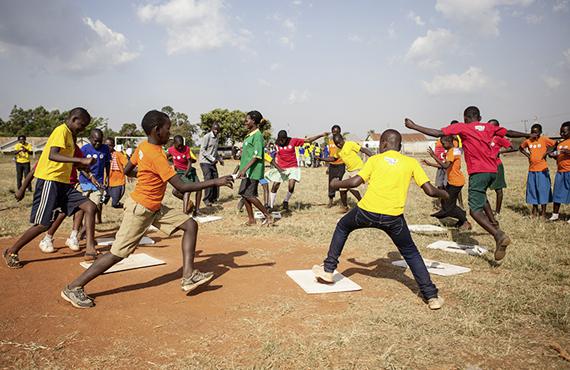The Millennium Development Goal target on sanitation is one of the most off-track. Today, four out of 10 people do not use an improved sanitation facility as currently defined—1 billion people defecate in the open. And to make matters worse, around 90% of wastewater in developing countries is released untreated into the environment. So what we have there is open defecation one step removed.
The proposed sustainable development goal (SDG) framework includes a goal that aims to provide access to adequate and equitable sanitation and hygiene for all by 2030. Sanitation is incredibly important, not just in its own right but because it impacts almost all of the other proposed SDGs. To highlight just a few links:
- Sanitation is a basic service and a human right. One of the determinants of poverty—an overarching focus of the SDGs—is a lack of access to basic services.
- Exposure to human excrement causes diarrhoea, a leading cause of under-five mortality and stunting, because even milder forms impact the uptake of nutrients. Achieving sanitation for all is therefore important to achieving SDG 2—ending hunger—especially on improving nutrition.
- Half of hospital beds in developing countries are occupied by people suffering from water, sanitation and hygiene-related diseases. Public health, the subject of SDG 3, will be impossible to achieve without sanitation.
- In the absence of adequate water, sanitation and hygiene facilities at schools, children, particularly girls reaching puberty, are much more likely to drop out of school, linking sanitation to SDG 4, on education.
Against this backdrop, what is needed to achieve access to adequate sanitation services for all? The traditional response to the sanitation challenge has been supply-driven construction drives. However, building toilets alone does not solve the problem. There are countless unwanted toilets that are now being used as bicycle sheds, storage space or temples.
Infrastructure supply will only be effective when combined with programmes to change people’s attitudes around sanitation and promote long-term behaviour change, because only a wanted toilet is one that is used.
There are important aspects to consider in making this happen. Plenty of evidence exists showing that traditional health-based messaging is not effective. WASH United therefore taps into things people love and aspire to: sports, such as football in sub-Saharan Africa and cricket in South Asia, celebrity role models and interactive games. Rather than having teachers lecture children about germs, WASH United’s behaviour change programme takes children out of the classroom and enables them to generate their own insights through interactive WASH games. Instead of creating fear, our large-scale campaigns use role models from the world of sport to tell positive stories to inspire attitude change around the “dirty” issue of sanitation.
Contributor

Thorsten Kiefer is the Chief Executive Officer and founder of WASH United, an international social impact organization that tackles sanitation and hygiene by linking it with what people love: sports, games and superstars. WASH United works with partners to develop innovative campaigns and behaviour change solutions that create impact at scale.


Post a comment